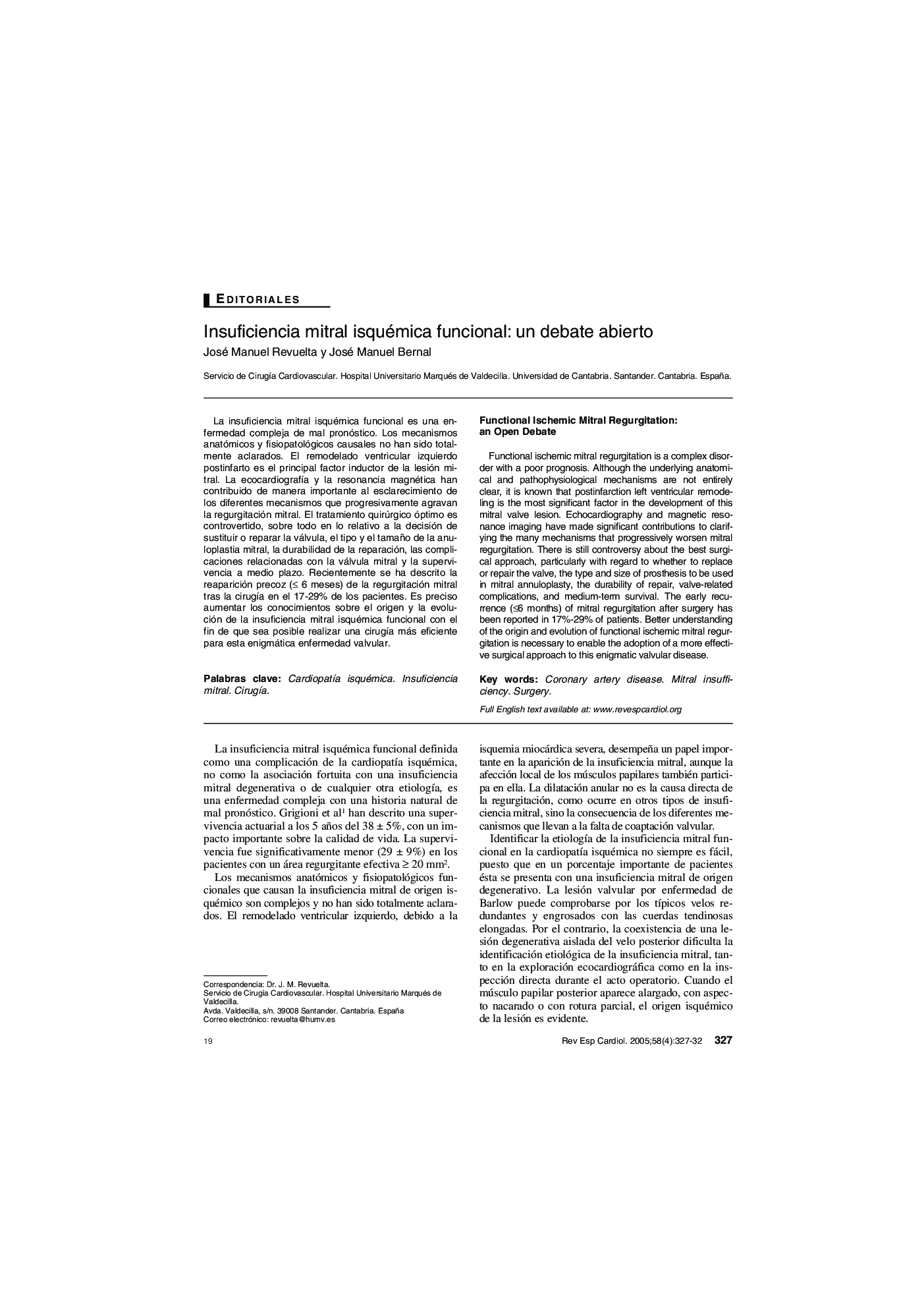| Article ID | Journal | Published Year | Pages | File Type |
|---|---|---|---|---|
| 9180814 | Revista Española de Cardiología | 2005 | 6 Pages |
Abstract
Functional ischemic mitral regurgitation is a complex disorder with a poor prognosis. Although the underlying anatomical and pathophysiological mechanisms are not entirely clear, it is known that postinfarction left ventricular remodeling is the most significant factor in the development of this mitral valve lesion. Echocardiography and magnetic resonance imaging have made significant contributions to clarifying the many mechanisms that progressively worsen mitral regurgitation. There is still controversy about the best surgical approach, particularly with regard to whether to replace or repair the valve, the type and size of prosthesis to be used in mitral annuloplasty, the durability of repair, valve-related complications, and medium-term survival. The early recurrence (⤠months) of mitral regurgitation after surgery has been reported in 17%-29% of patients. Better understanding of the origin and evolution of functional ischemic mitral regurgitation is necessary to enable the adoption of a more effective surgical approach to this enigmatic valvular disease.
Keywords
Related Topics
Health Sciences
Medicine and Dentistry
Cardiology and Cardiovascular Medicine
Authors
José Manuel Revuelta, José Manuel Bernal,
